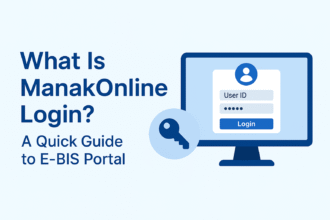How to Protect Yourself From Unwanted Calls and Scams: Proactive Measures
- 1 Proactive Measures to Protect From Unwanted Calls and Scams
- 1.1 Register for Do Not Call Lists:
- 1.2 Utilize Call Blocking Features:
- 1.3 Be Skeptical of Caller ID Spoofing:
- 1.4 Educate Yourself About Common Scams:
- 1.5 Never Share Personal or Financial Information:
- 1.6 Use Strong Passwords and Enable Two-Factor Authentication:
- 1.7 Report Suspicious Calls and Scams:
- 1.8 Stay Up-to-Date With Security Updates:
- 1.9 Be Cautious When Sharing Personal Information Online:
- 1.10 Trust Your Instincts and Stay Vigilant:
- 2 Let’s Sum Up:
Unwanted calls and scams have become increasingly prevalent in today’s digital age, posing risks to personal privacy, financial security, and peace of mind. From robocalls and phishing schemes to identity theft and fraud, individuals must proactively protect themselves from these threats.
In this blog, we’ll explore practical tips and strategies to safeguard against unwanted calls and scams, empowering you to stay vigilant and secure in an ever-evolving landscape of digital threats.
Proactive Measures to Protect From Unwanted Calls and Scams

Register for Do Not Call Lists:
One of the first steps in protecting yourself from unwanted calls is to register your phone number(s) with official Do Not Call lists. To limit telemarketing calls, government agencies maintain such lists in many countries, including the United States, Canada, and the United Kingdom. By registering your number, telemarketers are legally obligated to refrain from calling you for sales purposes, reducing the volume of unwanted calls you receive.
Utilize Call Blocking Features:
Most smartphones and landline phones offer call-blocking features that allow you to block specific numbers or categories of calls, such as unknown numbers or international calls. Please use these features to filter out unwanted calls and prevent them from interrupting your day. Consider installing third-party call-blocking apps with advanced features like community-based blocking and real-time call screening for added protection.
Be Skeptical of Caller ID Spoofing:
Caller ID spoofing is a technique scammers use to disguise their identity and make calls appear as if they’re coming from legitimate sources, such as government agencies or financial institutions. Be wary of incoming calls that seem suspicious or out of the ordinary, even if the caller ID appears familiar. Avoid providing sensitive information over the phone unless you can verify the caller’s identity through alternative means.
Educate Yourself About Common Scams:
Stay informed about common scams and fraud schemes circulating in your area or online. Scammers often use tactics like fake lottery winnings, IRS impersonation scams, tech support scams, and phishing emails to deceive unsuspecting individuals. Familiarizing yourself with these tactics and recognizing red flags can help you better protect yourself from scams and fraudulent activities.
Never Share Personal or Financial Information:
Exercise caution when sharing personal or financial information over the phone, especially in response to unsolicited calls or requests. Legitimate organizations, such as banks, government agencies, or utility providers, will never ask you to provide sensitive information like your Social Security number, banking details, or passwords over the phone. If in doubt, hang up and contact the organization directly using verified contact information to confirm the request’s legitimacy.
Use Strong Passwords and Enable Two-Factor Authentication:
Protect your online accounts and sensitive information by using strong, unique passwords for each account and enabling two-factor authentication whenever possible. Strong passwords should be complex and difficult to guess, incorporating a combination of letters, numbers, and special characters. Two-factor authentication adds an extra layer of security by requiring a secondary verification method, such as a code sent to your phone, to access your accounts.
Report Suspicious Calls and Scams:
If you receive a suspicious call or encounter a potential scam, report it to the appropriate authorities or regulatory agencies. In many countries, government agencies, such as the Federal Trade Commission (FTC) in the US or the Canadian Anti-Fraud Centre (CAFC) in Canada, handle reports of unwanted calls and fraudulent activities. Reporting scams helps you protect yourself and helps authorities track down and apprehend scammers, preventing further harm to others.
Stay Up-to-Date With Security Updates:
Regularly check for updates on your smartphone, computer, and other internet-connected devices, and enable automatic updates whenever possible. Use reputable antivirus and anti-malware software to scan for and remove any malicious software that may compromise your security.
Be Cautious When Sharing Personal Information Online:
Exercise caution when sharing personal information online through social media, email, or online forms. Scammers often use social engineering techniques to gather information about their targets, which they can use to craft convincing scams or phishing emails. Avoid oversharing personal details on public platforms and be wary of unsolicited requests for information from unknown sources.
Trust Your Instincts and Stay Vigilant:
Above all, trust your instincts and remain vigilant when protecting yourself from unwanted calls and scams. Don’t hesitate to hang up on suspicious callers, delete suspicious emails, or ignore unsolicited requests for information. By staying proactive and alert, you can reduce the likelihood of falling victim to scams and maintain peace of mind in an increasingly connected world. To read more about this in detail, check out this article.
Let’s Sum Up:
By registering for Do Not Call lists, utilizing call blocking features, being skeptical of caller ID spoofing, educating yourself about common scams, avoiding sharing personal or financial information, using strong passwords and two-factor authentication, reporting suspicious calls and scams, staying up-to-date with security updates, being cautious online, trusting your instincts, and staying vigilant, you can minimize the risk of falling victim to fraudulent activities and safeguard your personal information and financial security.
Remember, staying informed and proactive is key to staying safe in an ever-evolving landscape of digital threats.

















